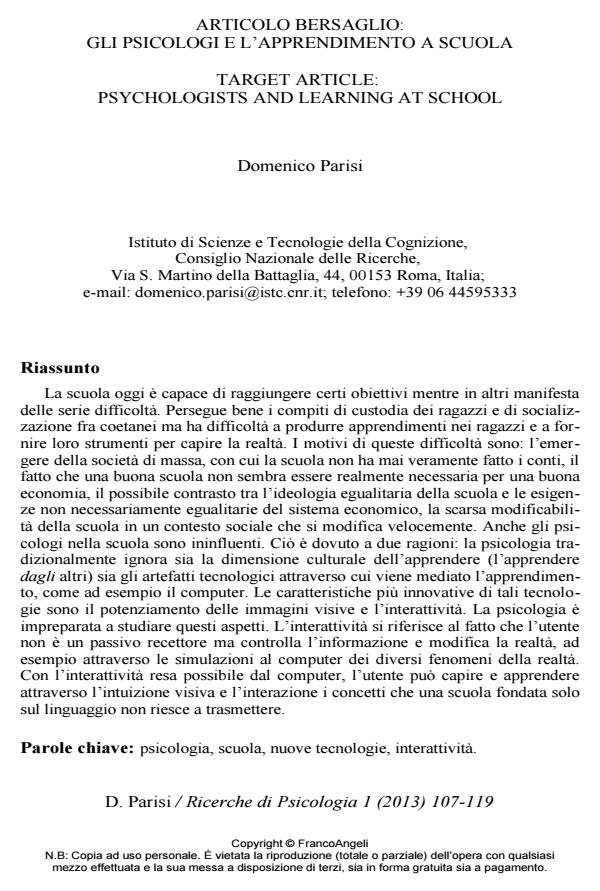Target article: psychologists and learning at school
Journal title RICERCHE DI PSICOLOGIA
Author/s Domenico Parisi
Publishing Year 2013 Issue 2013/1
Language Italian Pages 13 P. 107-119 File size 160 KB
DOI 10.3280/RIP2013-01005
DOI is like a bar code for intellectual property: to have more infomation
click here
Below, you can see the article first page
If you want to buy this article in PDF format, you can do it, following the instructions to buy download credits

FrancoAngeli is member of Publishers International Linking Association, Inc (PILA), a not-for-profit association which run the CrossRef service enabling links to and from online scholarly content.
Nowadays school successfully reaches some goals, while it has serious difficulties in other ones. It is a good environment for socialization and for cultural learning between peers but it meets with increasing difficulties in actually producing learning in students and in providing them with useful tools for understanding reality. Some of the reasons that explain these difficulties are: schools have not really come to term with mass society and culture; it is not clear that the economic system really needs efficient schools; the egalitarian goals of school education may be in contrast with the nonegalitarian exigencies of the economic system; the entire school system has great resistance to change in a society which undergoes rapid and constant change. Psychology today does not help schools very much in producing better learning in students for two main reasons: while most learning in schools is learning from others and from artefacts made by others, traditionally psychology has not been generally concerned very much with learning from others and from artifacts as distinct from learning in general. Today computers increase considerably the potential that visual images and interactivity have for school learning. Psychologists should concentrate their efforts in translating this potential into reality.
Keywords: Psychology, school, new technologies, interactivity
Domenico Parisi, Articolo bersaglio: gli psicologi e l’apprendimento a scuola in "RICERCHE DI PSICOLOGIA " 1/2013, pp 107-119, DOI: 10.3280/RIP2013-01005